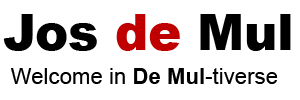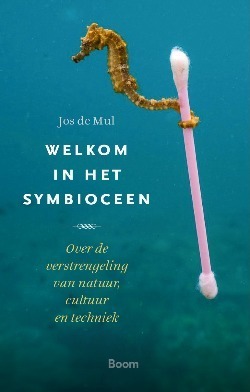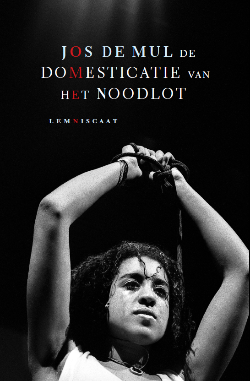1. Fragestellung der Tagung
Disruptive technologische Innovationen von KI basierten Neuroprothesen bis zur Genschere Crisp-Cas führen genauso wie die technisch vermittelten Gestalten des menschlichen Lebensanfangs in virtro und des menschlichen Sterbens unter Zuständen des Hirntods vor Augen, dass das Verhältnis von Natur und Technik an den Grenzen menschlichen Lebens diffus geworden ist.
Nachdem sich das Diskussionsform Philosophische Anthropologie der Grenzfragen menschlichen Lebens in den Jahren 2017 und 2018 den Fragen nach dem Gelingen des menschlichen Sterbens und dem Gelingen der menschlichen Geburt gewidmet hat, soll es sich 2019 das Gelingen der künstlichen Natürlichkeit an den Grenzen des menschlichen Lebens zum Gegenstand machen. Zu diesem Zweck soll die geplante Tagung am menschlichen Leben auf den Lebensanfang, das Lebensende sowie auf Grenzsituationen inmitten des Lebens blicken, in denen sich – etwa im Fall von Parkinson- oder depressiven Erkrankungen – die bislang für selbstverständlich genommenen Formen des Körper-habens, Leib- oder Selbst-seins oder der Lebensführung auflösen. Im Spektrum der disruptiven, technologischen Innovationen soll sie die Techniken ins Auge fassen, die das Mensch-Sein an seinen Grenzen vermitteln: insb. kI basierte Neuroprothesen, Pränataldiagnostik, Pränataldiagnostik und Eingriffe in das menschliche Erbgut sowie technisch basierte Pflege und Intensivmedizin am Lebensende.
In der Auseinandersetzung mit dem Mensch-Sein, das an seinen Grenzen durch die neuen Technologien (mit)hervorgebracht wird, soll die geplante Tagung eine doppelte – anthropologische und ethische – Fragestellung verfolgen. In anthropologischer Hinsicht soll sie der Frage nachgehen, welche neuen Formen des individuellen und intersubjektiv geteilten Mensch-Seins disruptive Technologien an den Grenzen des Lebens eröffnen. In ethischer Hinsicht soll sie eine kritische Auseinandersetzung mit den Potentialen und Gefahren führen, die von den technisch basierten Formen der Pflege, der Therapie und des Enhancements für die individuelle Lebensführung, die interpersonale Unterstützung – insb. durch die Gesundheitsberufe – und das politische Miteinander ausgehen. Es soll gleichermaßen nach der Eröffnung von neuen Freiheitspotentialen auf individueller, interpersonaler und politischer Ebene wie nach den Gefahren für die Autonomie und die Würde eines jeden Einzelnen, für das Verständnis und die Unterstützung des Anderen in seiner individuellen Besonderheit und für die Gerechtigkeit im politischen Miteinander gefragt werden.
In methodischer Hinsicht ist die Tagung dem Ideal des interdisziplinären Dialogs verpflichtet. Die verschiedenen Aspekte der künstlich vermittelten Natürlichkeit von Menschen an den Grenzen des Lebens sind Gegenstand von unterschiedlichen wissenschaftlichen Disziplinen und innerhalb der Philosophie nochmals von unterschiedlichen Subdisziplinen und Theorietraditionen: gleichermaßen von der Philosophischen Anthropologie, der Philosophie des Geistes, der Medizinethik und der Technikphilosophie innerhalb der Medizin wie von der Soziologie, der Robotik und den Computerwissenschaften, der Neurobiologie, der Medizin und den Pflegewissenschaften. Wenn die philosophische Auseinandersetzung der Komplexität ihres Gegenstands genügen soll, dann kann sie am Wissen der unterschiedlichen empirischen Wissenschaften nicht vorbeigehen. Aus diesem Grund macht es sich die Tagung zum Gelingen der künstlichen Natürlichkeit an den Grenzen des Lebens – wie bereits ihre Vorgängertagungen 2017 und 2018 – zur Aufgabe, ein Gespräch zwischen Vertreterinnen und Vertretern der unterschiedlichen, relevanten Disziplinen zu stiften.
Die geplante Tagung soll die Auseinandersetzung mit dem Gelingen der künstlichen Natürlichkeit in fünf Sektionen führen. Eine erste Sektion soll – in anthropologischer Perspektive – nach den Grenzen von Mensch-Sein und Technik fragen. Eine zweite Sektion soll sich der normativen Frage nach dem Gelingen und Misslingen der künstlichen Natürlichkeit an den Grenzen des menschlichen Lebens annehmen. Die Abendveranstaltung sowie die folgenden Sektionen vier und fünf sollen sich mit dem Mensch-Sein auseinandersetzen, das die unterschiedlichen, disruptiven Technologien der Therapie und u.U. des Enhancements in Grenzsituationen inmitten des Lebens, an seinem Anfang und an seinem Ende hervorbringen.
Breng mij die horizon! bij Studium Generale Erasmus Universiteit in Rotterdam, met een lezing 'Waarom we (niet) in de provincie blijven.' Marli Huijer – auteur van onder meer Achterblijven. Een nieuwe filosofie voor een grenzeloze wereld – geeft commentaar en gaat in gesprek met de schrijver.
Now... Bring me that horizon! zijn de gevleugelde woorden die Jack Sparrow in Pirates of the Caribbean sprak als weer een nieuw avontuur lokte. Het kan geen beter motto zijn voor dit boek van Jos de Mul, wereldreiziger in hart en nieren.
In Breng mij die horizon! reflecteert Jos de Mul op de vraag welke invloed reizen op ons denken heeft en neemt hij ons in een reeks filosofische reisverhalen mee op een adembenemende conceptuele reis door drie eeuwen en continenten. Welkom in de wereld van communistische catwalks, Boeddha-bots en psychedelische cyberhippies!
Jos de Mul, Poetics of Genetics. Performance at the Biggest Visual Power Show. Paradiso Amsterdam, 20 January 20, 2005.
Philosopher Prof. Dr. Jos de Mul – author of countless articles and books like 'Cyberspace Odyssey', 'Domestication of Fate' and 'Database Delirium' – was a speaker at the Biggest Visual Power Show 2005 in Paradiso, Amsterdam. Inspired by the images of Basia Knobloch and music of Lauri Anderson, professor De Mul decided to sing his lecture.
For someone who only has a hammer, everything appears to be a nail. For those who have computers, the world becomes a huge database.
The Biggest Visual Power Show – NextNature - is an intellectual spectacle blending a conference and a pop concert. BVPS mixes movies and live performance, morphs physical experiences into virtual imagination. The 2005 edition of the Biggest Visual Power Show was held in poptemple Paradiso, Amsterdam. Over twenty artists, scientist, writers, filmdirectors, architects, designers, presented their radical ideas, visionary statements and powerful imagery on how we can design, build and live in Next Nature.
VIDEO
More about the NextNature Powershow at NextNature.net








